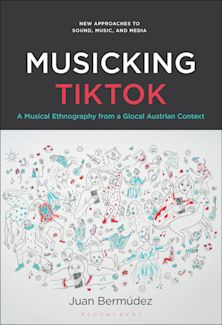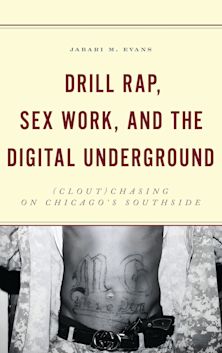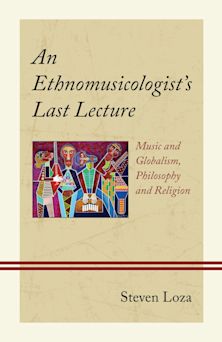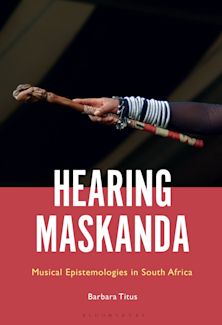- Home
- ACADEMIC
- Music & Sound Studies
- Ethnomusicology
- Uniting Music and Poetry in Twentieth-Century Spain
Uniting Music and Poetry in Twentieth-Century Spain
Uniting Music and Poetry in Twentieth-Century Spain
This product is usually dispatched within 1 week
- Delivery and returns info
-
Free US delivery on orders $35 or over
You must sign in to add this item to your wishlist. Please sign in or create an account
Description
In Uniting Music and Poetry in Twentieth-Century Spain, Nelson R. Orringer uses both literary and musical analysis to study sung poems in twentieth-century Spain. In nine chapters, each focusing on an individual sung poem, song cycle, or various poems set by the same composer, Orringer enriches and deepens interpretations of the art-songs by comparing the poet's vision to the composer's. In examining composers such as Falla, Turina, Mompou, Toldrà, Rodrigo, Montsalvatge, and Rodolfo Halffter, Orringer shows that Spanish art-song is an exceptional product of Spain’s Silver Age and reveals a new way to understand and appreciate poems set to music in twentieth-century Spain.
Table of Contents
Chapter 1: Falla´s Four Youthful Experiments in Song
Chapter 2: Glorifying Cordoba: Góngora and Falla
Chapter 3: Joaquín Turina´s Musical Sevillanismo in Four Songs
Chapter 4: Frederic Mompou´s Art of Dreaming Music in Combat del somni [Dream Combat]
Chapter 5: The Virginal Voice in Eduard Toldrà´s Six Songs of Castilian Poetry
Chapter 6: The Absent Dulcinea: Joaquín Rodrigo's Song to Music Itself
Chapter 7: Creative Landscapes of Salamanca in Unamuno and Joaquín Rodrigo
Chapter 8: Montsalvatge´s Cinco canciones negras [Five Black Songs]: The Search for Freedom through Music
Chapter 9: Rodolfo Halffter´s Canciones sobre Marinero en tierra [Songs on Sailor on Shore] or Nostalgia for a Spain Left Behind
Conclusions: Silver Age Song-Poems in the Era of Recapitulation
Product details
| Published | Apr 15 2021 |
|---|---|
| Format | Hardback |
| Edition | 1st |
| Extent | 274 |
| ISBN | 9781793630483 |
| Imprint | Lexington Books |
| Illustrations | 8 b/w illustrations; 37 tables; |
| Dimensions | 9 x 6 inches |
| Publisher | Bloomsbury Publishing |
About the contributors
Reviews
-
Music and poetry are two different arts, one acoustic, one linguistic, but in this book Nelson R. Orringer has brought out beautifully the synergy between the two, how they can interact with each other, and especially how composers capture, re-interpret, even enrich the work of poetic predecessors and contemporaries. Through considering Falla alongside Bécquer and Góngora, Turina alongside Lope, Mompou alongside Janés, Toldrá alongside Golden-Age poets, Halffter alongside Alberti, Rodrigo alongside Unamuno, and Montsalvatge alongside the Cuban poets, we are shown how the hybrid art of the song-poem acquires its own poetic and musical status. The poem remains a poem but its form has changed from pure verse-form to song-form. It is this process of change, the emergence of the song-poem, that Orringer studies so fascinatingly in this marvelously suggestive book. For those of us who love both literature and music this new work is a feast to be savored.
C. A. Longhurst, University of Leeds and Kings College (London)
-
When music lovers think of Spanish music, they invariably think of flamenco. If asked to confine their thinking to the classical repertoire, they will probably recall those works for guitar, piano, or violin that are based on Spain’s regional folklore. The existence of a Spanish Lied, or concert art song, is a well-kept secret or simply ignored. This book is a vital contribution to our understanding of the intersection of music and poetry in art songs by such celebrated composers as Falla, Turina, Rodrigo, and Mompou, utilizing texts by poets Cervantes, Góngora, and Unamuno. Orringer is one of those rare academics who possesses both the knowledge and daring to cross disciplinary boundaries in fleshing out important connections between literature and music. This book is exhaustively researched, elegantly written, and beautifully illustrated. It will prove invaluable to performers of this repertoire, as well as scholars and aficionados alike.
Walter A. Clark, University of California, Riverside
-
How does music enhance a poetic text? The world of Spanish classical music is much richer than we normally assume ("imperfectly known," in Orringer's telling words). Falla (here paired with Góngora and Bécquer) and Turina (Lope de Vega) are clearly world-renowned composers valued by broad audiences, but Orringer also brings closer attention to the artistic synergies of Mompou (with Janés), Toldrà (Lope de Vega), Rodrigo (Cervantes and Unamuno), Montsalvatge (Alberti and N. Guillén), Halffter (Alberti), and more, all of whose haunting rhythms, staccato melodies, and harmonious chords soar even higher when coupled with poetry. A deeper understanding of the poems and the musical scores that were stimulated by them are one of the goals of this richly-documented and ambitious book.
David T. Gies, University of Virginia, University of Virginia
-
Inept translators, unfamiliarity with verse forms, and musical ignorance too often distort the musical listener’s appreciation of the art songs that Spanish composers have created from the more endearing poems of both classical and modern Spanish and Latin American writers. In Uniting Music and Poetry in Twentieth-Century Spain, Nelson R. Orringer, one of the world’s premier hispanists and an informed student of musical technique, has assembled a study of nine songs or cycles that modern Spanish composers have adapted from both their countrymen’s and their descendents’ poems. The result is a book that enables both students of music and lovers of poetry to appreciate the generic give-and-take that has always informed every artistic creation. This book is a gem that will enrich the life of any musician or cultural studies enthusiast.
Thomas R. Franz, Ohio University
-
Few people can analyze the connections between music and literature with the depth and sensitivity with which Nelson Orringer does it in this volume, in which the Spanish song of the Silver Age recovers the place it has always deserved in international historiography. Furthermore, Orringer's deep knowledge of Spanish culture allows him to delve into into subtleties veiled to many, the reading of which will give to those interested in the field a greater enjoyment of the repertoire. It is without a doubt a magnificent book of research, but also a valuable guide for listening.
Elena Torres Clemente, Complutense University
-
Nelson R. Orringer’s new book is doubtlessly a labor of love and of great erudition that inspires admiration and respect, for it displays not only a profound knowledge of poetry and poetics, but also a very solid musicological foundation, both classical and modern, which remains quite rare in the field of literary studies.
Hispania

ONLINE RESOURCES
Bloomsbury Collections
This book is available on Bloomsbury Collections where your library has access.


































